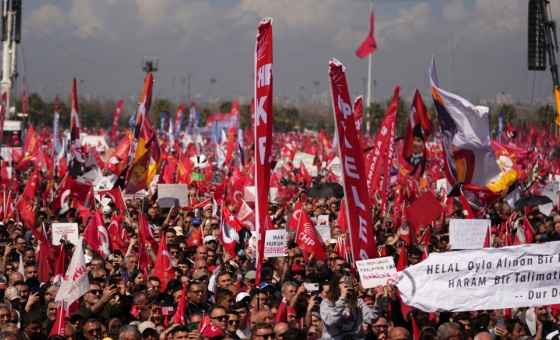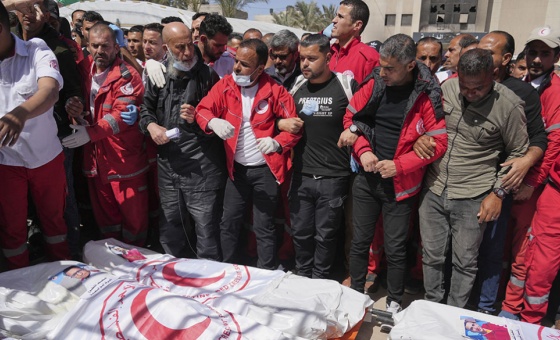This is the last article you can read this month
You can read more article this month
You can read more articles this month
Sorry your limit is up for this month
Reset on:
Please help support the Morning Star by subscribing here
Football can mean many things to many different people. Its breadth of appeal is what has sustained it through all the challenges it has faced.
Whatever is thrown at the game, people continue to pay to go through the gates and this consumer loyalty and liquidity means everyone wants to be associated with the glamour and potential wealth it promises.
Nowhere is this better illustrated than at the annual global convention of the game, known as Soccerex.
“Welcome to the world of football business” was the epithet all over the Manchester Central Convention Complex this week as plans were discussed, ideas put forward and a flurry of business cards exchanged by those eager to claim their own slice of this most fruitful of pies.
Yet amidst the suited executives attempting to further their latest apps, corporate facilities, supplements and tech, there were also stories being told about how the power of football can be harnessed for a greater good, to promote inclusion, tolerance and self-worth.
The highlight of the first day was the result of the inaugural Fifa Diversity Award, the three finalists shortlisted from 100 chosen organisations being the International Gay and Lesbian Football Association, the English anti-discrimination charity Kick It Out and the winners, Indian NGO Slum Soccer.
Receiving the award on their behalf, Abhijeet Barse explained how they use football as a tool to integrate marginalised children into society. “We offer them a safe place to play and then try to deliver them social skills using football-based situations and start a dialogue.”
As Thomas Hitzlsperger, who was chosen to form part of the 11-strong Fifa jury, explained: “It’s never easy to fight for a cause, to start something.”
The shortlisted were “those that have the endurance to keep on going, to overcome hurdles and never give up.”
Hitzlsperger is currently the highest-profile male footballer to come out as a homosexual but he refuted suggestions that it has defined him.
“That’s what I thought would happen with me but it’s wrong. Everytime someone says: ‘Oh you’re Thomas Hitzlsperger, the ex-Villa player or you’re the ex-West Ham player,’ nobody ever says: ‘You’re the gay footballer.’
“People sometimes come up [and say]: ‘It’s great what you did, the fact that you came out,’ they really like that. I was overwhelmed by the positive reaction from people.”
Such tolerance and acceptance is the aim of so much of the unseen work of groups like Kick It Out.
Roisin Wood, representing them in Manchester, praised “the work that Troy Townsend and Paul Mortimer do in academies, educating young players from the age of nine up to 21 plus their parents and their coaches — that’s a massive piece of work and quite an impactful piece of work.”
John Wroe, the CEO and co-founder of the Street Child World Cup is one who may find himself rewarded in the future. He spoke emotionally about attempting to reach out to the estimated 150 million street children around the world who suffer from the threat of violence, a lack of legal status and limited or no access to education.
Their work has led to a government resolution being passed in Pakistan, the registration of millions in India and the end of police round-ups in South Africa.
Held alongside the World Cup, such was the impact of the 2014 Street World Cup on former Brazil international Gilberto Silva that he signed up as a patron and represented them in Manchester.
Now Wroe looks forward to the next edition in Moscow in 2018, which will feature 24 national teams for the first time, culminating in finals on grass pitches laid out in Red Square. “It’s our ambition to make Russians as proud of the 2018 Street World Cup as they were of putting the first man in space.”
In a week where the back pages were dominated by allegations and tales of corruption and greed, Soccerex seemed an unlikely place to find hope but it was there if you looked in the right places.
Another member of the Fifa Diversity Award jury, Clarence Seedorf, summed up the influence a simple game can have.
“We all know that there is a lot to do in the world but we also know the power of football, the power of sport in general is great.
“We can push things in the right direction, leading by example.”
At the end of a difficult week off the field he believed “the focus really should be on how we can move forward together and create a more diverse world and more inclusion.”








